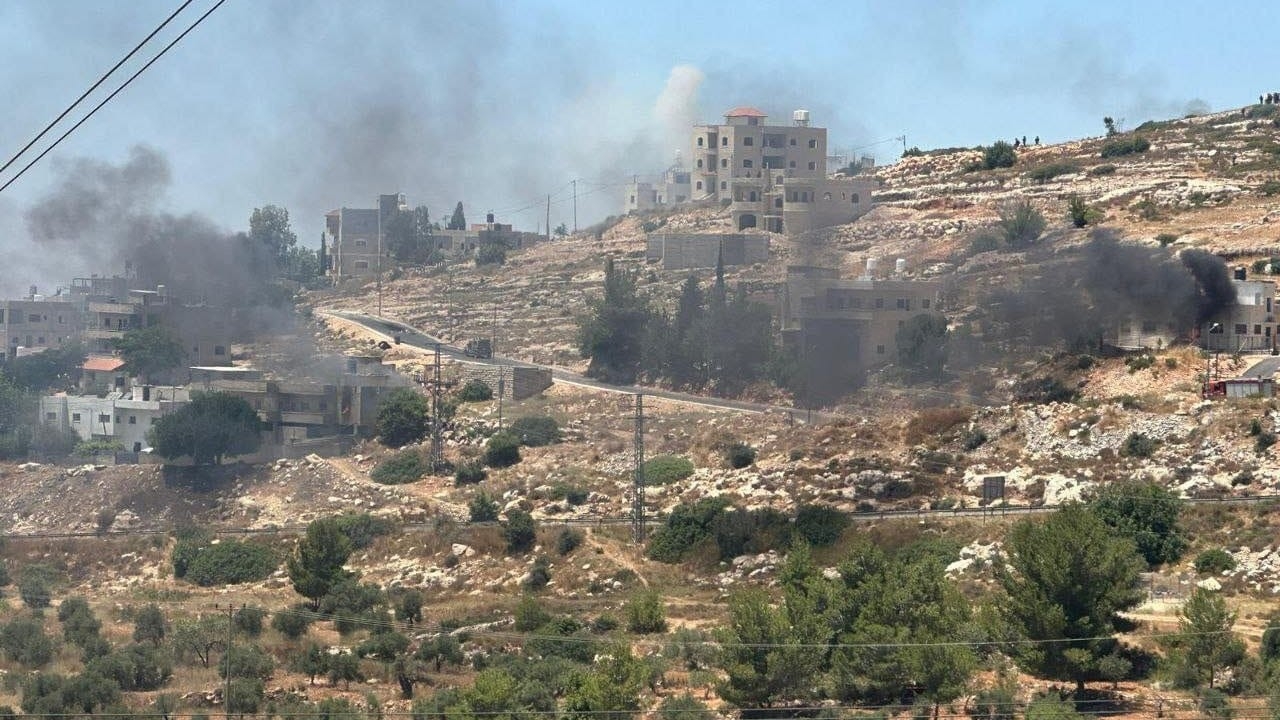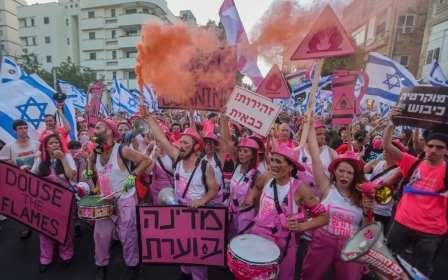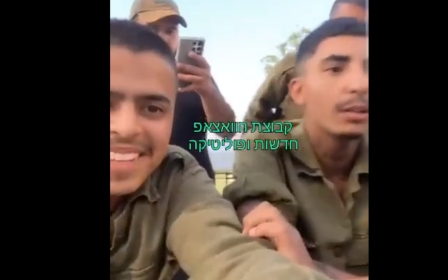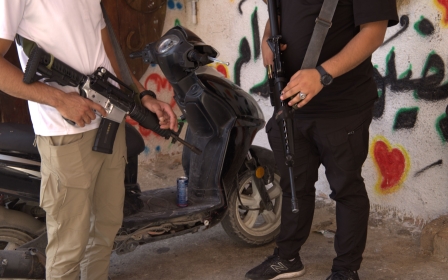Israeli settlers' rampage against Palestinian villages continues for fifth day

Israeli settler gangs on Sunday morning burned crops in the Palestinian town of Turmusaya, north of Ramallah, only days after the village was subjected to a rampage that left at least 3o houses and 70 vehicles on fire.
More than 400 settlers stormed the village on Wednesday under the protection of the Israeli army, killing one Palestinian, Omar Jabara Abu Al-Qattin, 25.
Israeli settler attacks on Palestinian villages are increasingly a regular occurrence for West Bank residents.
On Saturday, dozens of settlers swept through several West Bank villages attacking Palestinian homes in scenes that have been described as an organised "pogrom".
Several dozen settlers rampaged through the village of Umm Safa, in the occupied West Bank, terrorising Palestinian residents.
New MEE newsletter: Jerusalem Dispatch
Sign up to get the latest insights and analysis on Israel-Palestine, alongside Turkey Unpacked and other MEE newsletters
Video footage of the attack has surfaced online showing roving gangs of settlers firing bullets towards Palestinian houses.
The latest attack marks the fifth consecutive day of vigilante attacks against Palestinian villages in the West Bank.
Palestinian media outlet Arab48 said that at least 10 houses were destroyed in Umm Safa and seven vehicles.
The settlers carried out the attacks with the protection of the Israeli army, according to Palestine TV journalist Mohammed Radhi.
An off-duty Israeli soldier was one of four suspects detained following the attack on Umm Safa.
Following the latest attack, the Israeli military chief Herzi Halevi, the head of the Israeli intelligence at Shin Bet, Ronen Bar, and Israeli Police Commissioner Kobi Shabtai issued a joint statement strongly condemning the recent string of settler attacks on Palestinians in the West Bank, branding them as "nationalist terrorism in the full sense of the term".
The Israeli military has admitted to having "failed" to stop other settler riots in recent days.
Israeli settlers also attacked the electricity grid, causing a blackout in several Palestinian villages including Umm Safa, Deir Sudan, Ajjoul and Attarah.
Spiralling violence
Separately on Saturday, a Palestinian teenager was left bleeding to death after being shot by Israeli forces at a military checkpoint at Qalandia, a village between Jerusalem and Ramallah.
Ishaq Hamdi Ajlouni, 17, was shot and killed by Israeli forces after he opened fire, lightly wounding a security guard.
Violence has engulfed the West Bank this past week following Israel's raids on the Jenin refugee camp on Monday that left seven Palestinians dead.
The raids were followed by an attack on Tuesday by two Palestinian gunmen that left four Israeli settlers dead.
Israel continued to ratchet up tensions when on Wednesday it carried out its first drone strike in the West Bank in almost 20 years, leaving three Palestinians dead.
Last year, faced with an increase of armed resistance in the West Bank, Israel publicly initiated the Break the Wave campaign, enabling near-daily military raids across the West Bank and an escalation in Israel's shoot-to-kill policy, resulting in mass arrests and the deadliest year for Palestinians in the occupied territories since the Second Intifada two decades ago.
Since the start of this year, Israeli forces and settlers have killed at least 171 Palestinians, including 26 children.
A total of 135 fatalities have been recorded in the West Bank and East Jerusalem and a further 36 in the Gaza Strip. In the same period, Palestinians have killed at least 24 Israelis.
Middle East Eye delivers independent and unrivalled coverage and analysis of the Middle East, North Africa and beyond. To learn more about republishing this content and the associated fees, please fill out this form. More about MEE can be found here.





